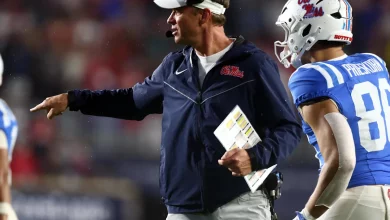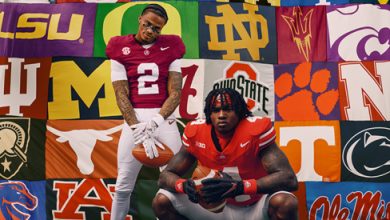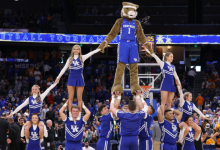The Chicago Bears and Governor JB Pritzker have quietly enlisted outside consultants to assist with ongoing discussions about a new stadium.

The Chicago Bears, one of the NFL’s most storied franchises, have been at the center of stadium discussions for several years. Soldier Field, the Bears’ home since 1971, has aged considerably and, despite renovations, no longer meets the demands of modern professional football venues in terms of capacity, amenities, and revenue-generating capabilities. Recognizing the critical need for a new stadium to keep the team competitive and financially viable, ongoing discussions have been taking place between the Bears organization, state officials, and other stakeholders.
Most recently, Illinois Governor JB Pritzker and the Bears have quietly brought outside consultants into the fold to assist with these complex negotiations. This move underscores the evolving nature of stadium deals — which now involve more intricate public-private partnerships, complex financing arrangements, urban planning considerations, and broader economic development goals. This analysis explores the background leading to this development, the role of outside consultants, and the potential impact of their involvement on the future of the Bears and Illinois.
Background: The Bears and Soldier Field
Since moving into Soldier Field in 1971, the Bears have witnessed tremendous highs and lows. While Soldier Field is an iconic landmark, its location and infrastructure present challenges. The stadium’s capacity is limited compared to newer NFL venues, and its aging infrastructure is less attractive for hosting non-football events, such as concerts and conventions, which are important revenue streams for modern stadiums.
Despite a significant renovation completed in 2003, Soldier Field still falls short of modern NFL stadium standards. Other teams have invested hundreds of millions of dollars in new or significantly upgraded stadiums with state-of-the-art amenities like premium suites, club seating, fan engagement technology, and more expansive concession and retail spaces. These upgrades drive significant revenue increases, helping teams compete financially in a league that increasingly demands bigger revenue pools.
In recent years, public discussions and media reports have speculated about the Bears’ interest in a new stadium. The challenge, however, has always been how to finance such a massive project. NFL stadiums today can cost anywhere from $1 billion to over $2 billion to build, with public funding, private investments, and league contributions often playing roles in the final package.
Governor JB Pritzker’s Role and Interest
Governor JB Pritzker, elected in 2018, has positioned himself as a proponent of economic development initiatives that create jobs and attract investment to Illinois. Sports venues, especially in major cities like Chicago, often serve as economic catalysts, spurring urban development, increasing tourism, and generating tax revenues.
Recognizing this, Pritzker has shown interest in supporting projects that promise broader economic benefits. The Bears’ stadium situation presents an opportunity for Illinois to leverage a major sports franchise as a cornerstone of urban renewal and economic expansion.
At the same time, Governor Pritzker is aware of the political sensitivity around public funding for stadiums. Many taxpayers and public officials remain skeptical of using significant public dollars to fund stadium construction, given mixed evidence about the long-term economic benefits of such investments. As a result, Pritzker’s administration seeks a balanced, carefully negotiated solution that aligns the interests of the Bears, taxpayers, and the state.
The Involvement of Outside Consultants: Why Now?
Stadium deals today are complex, multifaceted undertakings involving financial, legal, and political considerations. For the Bears and the Illinois government, engaging outside consultants brings several advantages:
- Expertise in Complex Negotiations: Consultants specializing in stadium deals understand the nuances of public-private partnerships, financing options, and stakeholder management. Their expertise helps ensure all parties’ interests are balanced, and the negotiation moves forward constructively.
- Objective Analysis: Independent consultants provide an objective assessment of project feasibility, economic impact studies, and cost-benefit analyses, which are essential to justifying investments and addressing public concerns.
- Strategic Advice: Consultants can offer strategic advice on potential locations, design features, financing structures, and community engagement strategies that maximize benefits while minimizing risks.
- Facilitating Communication: By serving as neutral intermediaries, consultants can facilitate dialogue between the Bears, state officials, city leaders, and community groups, helping to resolve contentious issues.
- Risk Management: Stadium projects are inherently risky, with cost overruns, construction delays, and political opposition common. Consultants help identify and mitigate these risks early.
The Potential Consultants’ Areas of Focus
Though the details of the consultants’ identities and contracts are not publicly disclosed, their likely areas of focus include:
- Financial Structuring: Developing models for how the stadium might be funded, including potential mixes of private investment, public funding (tax increment financing, bonds, etc.), and NFL contributions.
- Site Analysis: Evaluating possible locations for the stadium, including downtown Chicago, suburban sites, or even adjacent to Soldier Field, considering accessibility, land acquisition costs, and community impact.
- Economic Impact Studies: Quantifying potential benefits to the local economy, such as job creation, increased tourism, and secondary development around the stadium.
- Community Engagement: Crafting plans for public outreach and addressing community concerns around traffic, noise, and displacement.
- Legal and Regulatory Compliance: Ensuring that any deal complies with state laws, city regulations, and league requirements.
Challenges and Considerations
Despite the advantages of hiring outside consultants, the Bears and Governor Pritzker face significant hurdles:
- Public Skepticism: In Illinois and across the country, there is growing skepticism about public subsidies for sports stadiums. Voters and activists argue that taxpayer money should go to education, infrastructure, and health care rather than private sports teams.
- Political Opposition: City council members, state legislators, and community groups may oppose certain financing mechanisms or locations, complicating approval processes.
- Cost Concerns: The projected costs of a new stadium could run into the billions. Balancing cost containment with state-of-the-art design and amenities is a difficult task.
- Negotiation Complexities: Aligning the interests of the Bears’ ownership, NFL officials, the state government, the city of Chicago, and local residents requires careful, patient negotiation.
- Timing and Uncertainty: Construction timelines and NFL schedules mean decisions need to be timely. Delays could impact the Bears’ season planning and revenue projections.
Potential Benefits of a New Stadium
If successfully executed, a new stadium could deliver substantial benefits:
- Modern Facility: A state-of-the-art stadium would improve the fan experience and allow the Bears to compete financially with other NFL teams.
- Economic Growth: The stadium could become a hub for entertainment and tourism, attracting other events and businesses.
- Job Creation: Construction and ongoing operations would create both short-term and long-term employment opportunities.
- Urban Revitalization: A new stadium could spur development in underutilized areas, improve infrastructure, and enhance neighborhood amenities.
- Civic Pride: A new home for the Bears could serve as a symbol of Chicago’s vitality and commitment to sports.
Looking Ahead: The Future of Bears Stadium Discussions
The involvement of outside consultants signals that the Bears and Governor Pritzker are moving from preliminary talks to a more detailed, data-driven phase of negotiations. The consultants’ work will help clarify what is feasible and provide a blueprint for a potential deal.
While the project faces challenges, the continued collaboration between the team and government officials suggests a mutual interest in finding a solution that benefits all parties. The Bears want a stadium that secures their future in Chicago, and the state seeks economic returns and political support.
Over the coming months, expect the consultants to release analyses and recommendations that will shape public discourse and policy decisions. Community engagement will likely increase as officials seek input and address concerns. Transparency around financing and project scope will be crucial to gaining public buy-in.
The Chicago Bears’ stadium saga is emblematic of the modern complexities faced by major sports franchises and government entities in building new venues. With the quiet addition of outside consultants to the process, both the Bears and Governor JB Pritzker are signaling a serious commitment to navigating these complexities with expert help.
While much remains uncertain about the final location, financing, and design of a new Bears stadium, the involvement of these consultants suggests a more informed and strategic approach is underway. Their expertise will be key to balancing competing interests, mitigating risks, and ultimately delivering a stadium that meets the needs of the team, the fans, and the Illinois public.
As the Bears and Governor Pritzker continue down this path, their collaborative efforts may not only determine the future home of Chicago football but also serve as a model for how public and private sectors can work together on large-scale urban development projects.









